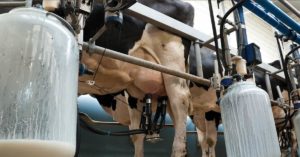
Why Choosing American-Made Robots Pays Off: The Standard Bots Advantage
Why Choosing American-Made Robots Pays Off: The Standard Bots Advantage At Butler and Land, we’re proud to represent Standard Bots—a cutting-edge line of collaborative robots
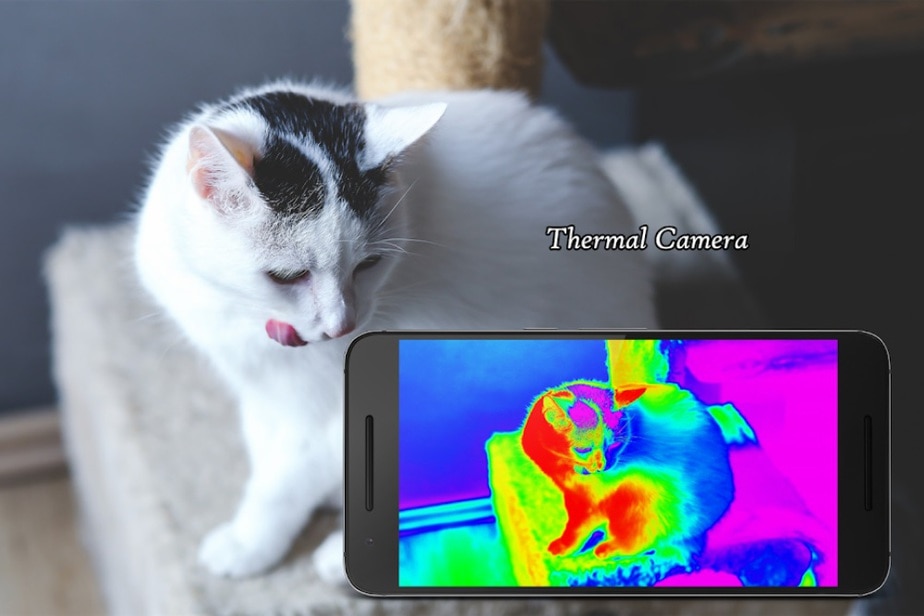
Thermal imaging cameras convert thermal energy (heat) into visible light in order to examine a specific object or scene. The image created is called a thermogram, and it is analyzed using a technique called thermography. Thermal imaging cameras are advanced devices that process and display the captured image on a screen. These images can be used for immediate diagnosis or they can be processed with specialized software for further analysis, accuracy, and report generation. Thermal imaging cameras take temperature measurement to the next level; instead of a number, you get a picture of the temperature differences across a surface.
Many discrete physical connections exist between cables and various connectors, as well as between connectors and mounting studs on equipment, in electrical wiring. The low electrical resistance between the items connected by the connection is the mark of a high-quality electrical connection. This low contact resistance is necessary for continued electrical efficiency. When a current is passed through an electrical resistor of any kind, some of the electrical power is dissipated. Heat is produced by the dissipated power. If the connection’s quality deteriorates, the device effectively becomes an energy dissipating device as its electrical resistance rises. The phenomenon of ohmic heating occurs when the connector or joint’s resistance is increased. The thermographic camera is used by electricians and maintenance technicians to locate hot spots in electrical panels and wiring. On a thermogram of the electrical panel, the heated electrical components appear as bright spots.
If your home is poorly insulated or has poor seals around doors and windows, a good HVAC unit will only get you so far. These problems can cause heat and cool air to escape quickly, as well as allowing outside air in. As a result, your HVAC system will be overworked, and your energy bills will skyrocket. Thermal imagers can assist you in inspecting your home for signs of air leaking or entering, as well as identifying any areas in your walls where insulation is missing.
Plumbing issues are particularly aggravating because you can’t see what’s going on inside the pipes. You can put a plumbing snake down the drain, but you can’t see through the pipes to see if there’s a clog until now. Thermal imaging can give you a much better idea of how water flows through pipes and how clogs are formed. You can watch as you work to unclog the clog while running hot water through it in real time.
Roofs are one of the most significant investments you can make in a home, so it’s critical to keep them in good shape and address any repair issues as soon as they arise. This isn’t always simple to do with the naked eye or without climbing up onto the roof. You can inspect your roof from the ground level with a thermal camera, looking for areas where heat is escaping or cool spots where water is accumulating due to shingle damage.
Three wires connect three-phase electrical equipment to the power supply. Each wire in the circuit should carry the same amount of current. It is possible, however, for the phases to be out of balance. In this case, one of the phases’ current is significantly different from the others. As a result, a temperature difference exists between the three connections. Thermographic cameras can easily and dramatically depict this imbalance. Consider how easily a thermographer can inspect overhead electrical connections or pole-mounted transformers from a safe, remote location on the ground.
When responding to emergency situations, firefighters and rescue crews sometimes rely on thermal imaging. For firefighters, this means employing thermal cameras to both locate people trapped inside a structure and to navigate when dense smoke obscures their vision.
Thermal imaging can be used to locate victims trapped inside collapsed structures or buried in debris by rescue personnel. This is especially useful when there are multiple victims to find and time is of the essence.
Because animals and pets are unable to communicate, it can be difficult to determine whether or not they are suffering from health problems, or where the problem may be located. When it comes to fevers, inflammation, and infections, heat is always a good indicator of a problem in both humans and animals.
Thermal imager cameras can quickly show where a hot spot is, allowing you and your veterinarian to know where to focus your diagnostic efforts. Larger animals and livestock, such as buffalos and chickens, will benefit from this.
In industries, infrared imaging is widely used to detect gas leaks. When an infrared camera is pointed at a surface with a gas leak, it displays the temperature difference caused by pressure variations at the point of the leak.
Water leaks may not appear to be a major problem at first, but they can cause significant damage to your home over time, whether by causing decay in wood structures or causing potentially disastrous problems with your roof, basement, slab, or foundation.
Thermal imagers are capable of detecting both hot and cold water leaks. It can be difficult to detect a water leak on your own, especially if it is hidden behind walls. You can easily spot inconsistencies in water flows, pinpoint puddles that you’d otherwise miss, and spot leaks coming down walls with a thermal camera.
Thermal imaging was pioneered by the military, so it’s no surprise that thermal cameras are extremely useful for security, particularly at night. Thermal imaging isn’t just useful for locating people at night; it can also be useful when you’re camping and want to know if that branch you heard snapping in the distance was a possum or a wolf.
Thermal imaging can assist you in detecting intruders hiding in the dark, as well as any animal threats that may be present. Thermal imaging is used by law enforcement and the military on a daily basis in a variety of situations.
When it comes to automobiles, overheating is a sign of trouble, just as it is with electrical work and HVAC systems. This is true whether the issue is with the car’s electrical system and fuse box, or with engine problems. Thermal imaging can assist mechanics in pinpointing the exact location of a problem within the engine, saving time and preventing unnecessary disassembly.
The amount of heat lost to the environment is a function of the inside temperature. Because radiant losses can easily exceed convective and conductive losses at higher temperatures, heat loss increases nonlinearly with temperature. The refractory block inside a kiln, boiler, or furnace, for example, is designed to reduce heat loss to the environment. Any refractory defects can be quickly identified using thermography. A blast furnace, with its massive amount of refractory, is another application for the technology.
Thermography is also used to inspect concrete bridge decks and other types of paved surfaces. Voids and delamination in and among the various layers of paving materials are the defects in question. The overall thermal conductivity of the pavement slab is affected by the air or water contained within the interlaminar spaces. These flaws can be detected using an infrared imager.
When a bridge or storage tank has been repainted several times during its service life, painted surfaces become multilayer composites. The presence of hidden rust, blistering, cracking, and other delamination defects between adjacent paint layers complicates objective visual inspection. Transient thermography is a technique that restores objectivity to the evaluation of a potentially costly repainting project.

Why Choosing American-Made Robots Pays Off: The Standard Bots Advantage At Butler and Land, we’re proud to represent Standard Bots—a cutting-edge line of collaborative robots

Exploring The Versatility Of The Standard Bots RO1 Robot In the ever-evolving field of robotics, the Standard Bots RO1 robot has emerged as a game-changer.
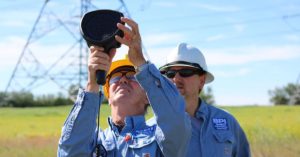
The FLIR Si124: Keeping the Lights On and Preventing Failures Application Story From FLIR Shop FLIR SPI Inspections relies on their vast field experience and

Using FLIR Thermal Imaging Cameras, dairy farms can perform an automatic health check Case Study From FLIR Shop FLIR As they become more and more
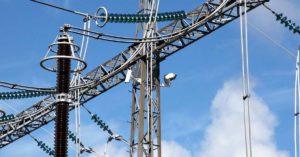
In Stavanger, Norway, Thermal Imaging Cameras Guard an Electrical Substation Case Study From FLIR Shop FLIR It is impossible to imagine modern society existing without
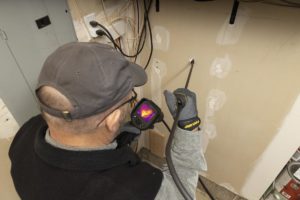
Using Thermal Imaging to Find Hidden Issues During Home Inspections From FLIR Shop FLIR Regular inspections beyond what we can see on the outside are
Copyright © 2025 Butler & Land Technologies, LLC. All Rights Reserved.
Privacy Policy Return & Refund Policy Terms & Conditions Purchase Terms & Conditions